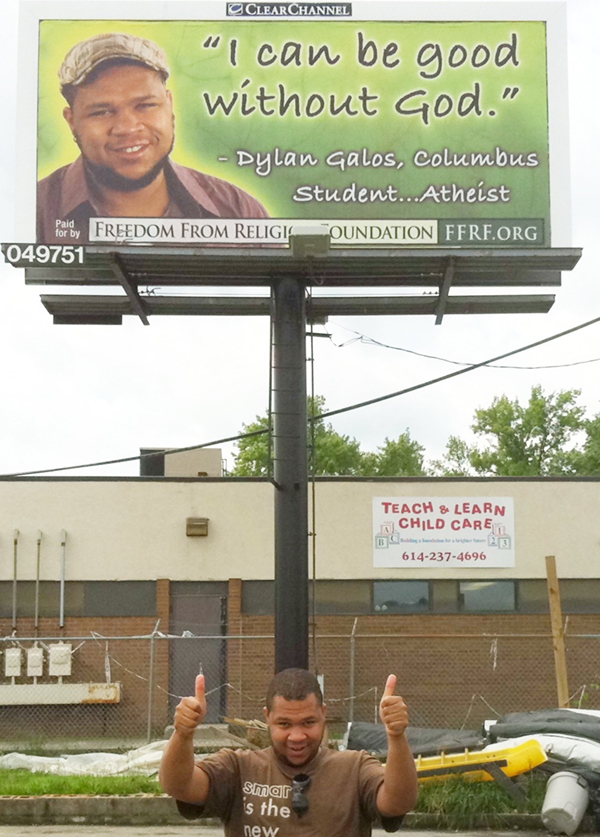
Has the Ohio church that insisted an atheist group's billboard be moved off its commercial property ever paid taxes on the property, as required by law? Did Christ Cathedral Church in Columbus misrepresent the intended use of the property when applying for a tax exemption?
Those are questions posed by the Freedom From Religion Foundation in a July 7 letter to Franklin County Auditor Clarence Mingo.
Right after one of the seven billboards sponsored by FFRF in Columbus went up in mid-June, Rev. Waymon Malone Jr., Christ Cathedral pastor, insisted it be moved off church property. The billboard featured Columbus resident Dylan Galos saying, "I can be good without God."
Apparently, the company that FFRF worked with in Columbus didn't know the property was owned by a church. Christ Cathedral is located at 3350 Allegheny Ave., and the billboard is located behind the church, facing Stelzer Road.
After Malone complained, the Galos billboard was moved to East Main Street west of Alum Creek Drive. After the property owner there complained, it was moved a second time. Now it's located at 2600 Highway 104, about 600 feet east of Groveport, facing west.
In FFRF's letter to Mingo, Co-President Annie Laurie Gaylor said it appears the church hasn't paid any property taxes even though a commercial billboard is located the property. "We have enclosed your office’s summary of the property that lists $0 in annual taxes on the property and its classification as 'exempt.'
"Additionally, we have provided a copy of Christ Cathedral Church’s application for exemption that was completed by Mr. Malone in 1997," the letter said. "When asked how the property was being used, Mr. Malone said, 'for a church.' On the form, Mr. Malone also stated that the property was not being leased or rented to anyone else, was not used to produce any income other than donations, and that no one else was using the property other than the applicant."
Gaylor added that FFRF understands that “split-listing” church properties into taxable and nontaxable portions is legal, depending on whether the facilities on the church properties are being used for public worship.
"We request that you investigate this matter," Gaylor wrote, "It appears that the church qualifies to be taxed for the portion of the property that is occupied by the billboard, and therefore, we request that the church pay the appropriate amount of current and back taxes owed."

